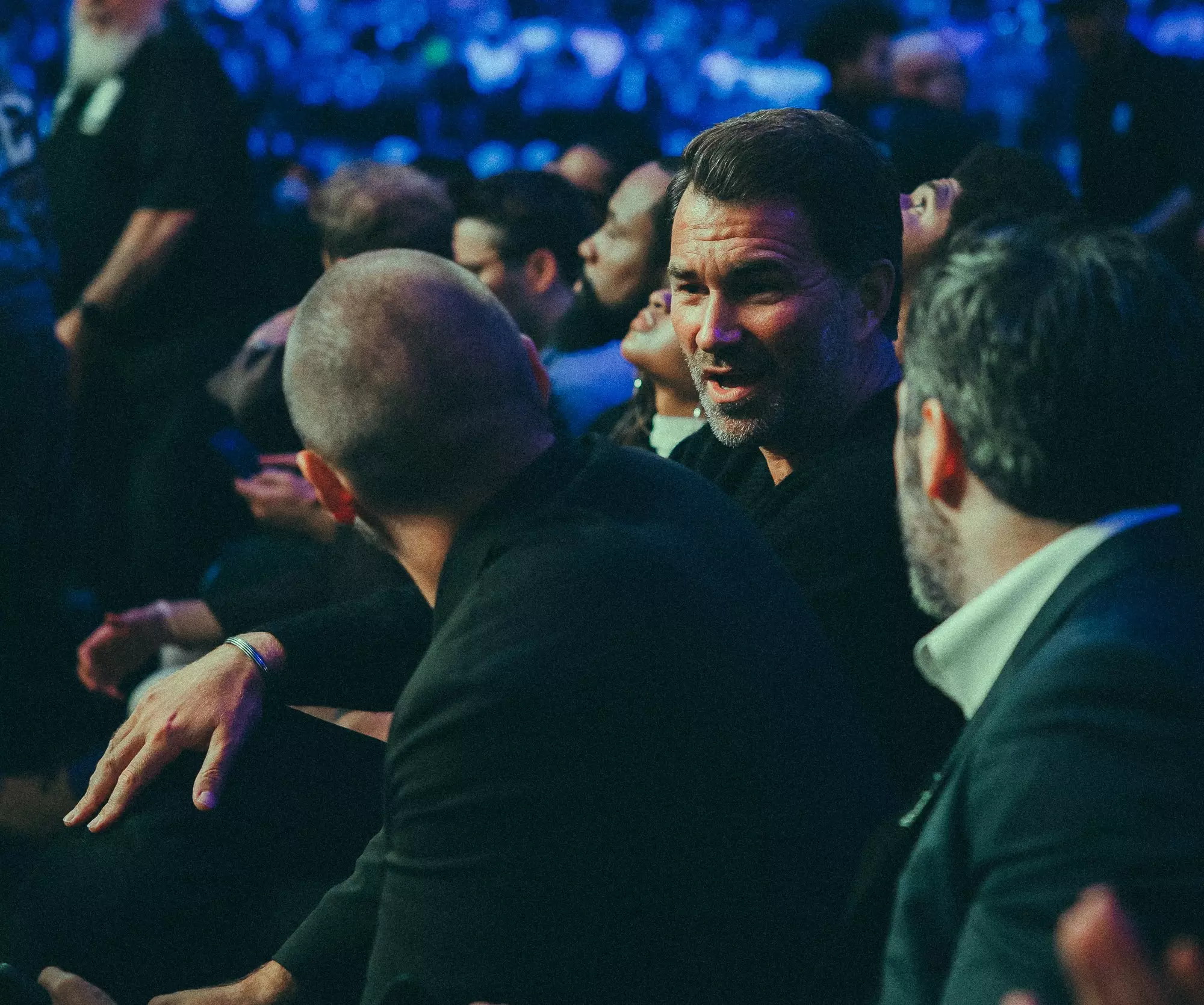In the ever-evolving world of boxing, the matchup between the legendary Mike Tyson and YouTube star Jake Paul has sparked a wave of controversy and reflection. Promoter Eddie Hearn, known for his candid and sometimes critical viewpoints, recently shared his discomfort regarding the fight’s dynamics. Hearn’s statement underscored a growing divide between traditional boxing enthusiasts and the new generation of fighters who leverage social media fame to engage in a sport with a rich history.
The fight, which took place last Friday night, was perhaps one of the most lopsided displays in recent boxing history. With Tyson at 58 years old, many observers became concerned about the implications of such a matchup. Jake Paul, who is still carving his own legacy in the sport, openly admitted he had no desire to harm Tyson during the bout—an admission that raises eyebrows regarding the fight’s appropriateness. This dynamic has not only drawn criticism from figures like Hearn but also points to the ethical considerations of celebrity boxing matches.
Hearn did not shy away from voicing his opinion, stating plainly that he didn’t enjoy watching the fight. His perspective reflects a sentiment echoed by many purists within the boxing community, who feel that such spectacles undermine the integrity of the sport. With references to the lucrative nature of these bouts, Hearn acknowledged the significant viewership and ticket sales. However, he questioned whether monetary success could justify the degradation of boxing’s competitive spirit.
Contrasting the Tyson-Paul event, Hearn mentioned the possibility of a more competitive fight, such as one between Jake Paul and former champion Gennadiy Golovkin. The thought of Golovkin stepping back into the ring at 42 years old incites both excitement and apprehension. Fans might flock to see the dynamic clash, as Paul would face a legitimate threat rather than a retired icon. Unlike the Tyson spectacle, this potential crossover could offer genuine drama and authenticity—the core elements that have long captured the hearts of boxing aficionados.
While Hearn acknowledges the decline in traditional boxing values, he also admits to an audience that thrives on content-driven entertainment. “There’s no right or wrong,” he stated, recognizing the diverse interests among fans. What might resonate with a segment of viewers can be downright uncomfortable for others, suggesting that boxing is at a crossroads—torn between maintaining its storied legacy and embracing a more commercial, entertainment-based approach.
As boxing navigates this complex landscape, the divide between traditional values and contemporary entertainment becomes increasingly pronounced. Eddie Hearn’s critiques highlight a critical discussion regarding what the future holds for a sport deeply rooted in history and competition. The challenge remains: how to balance the allure of social media personalities with the integrity of an age-old sport. The Tyson vs. Paul fight serves as a glaring example of this ongoing struggle, prompting fans and promoters alike to ponder what they truly want from boxing in the years ahead.

